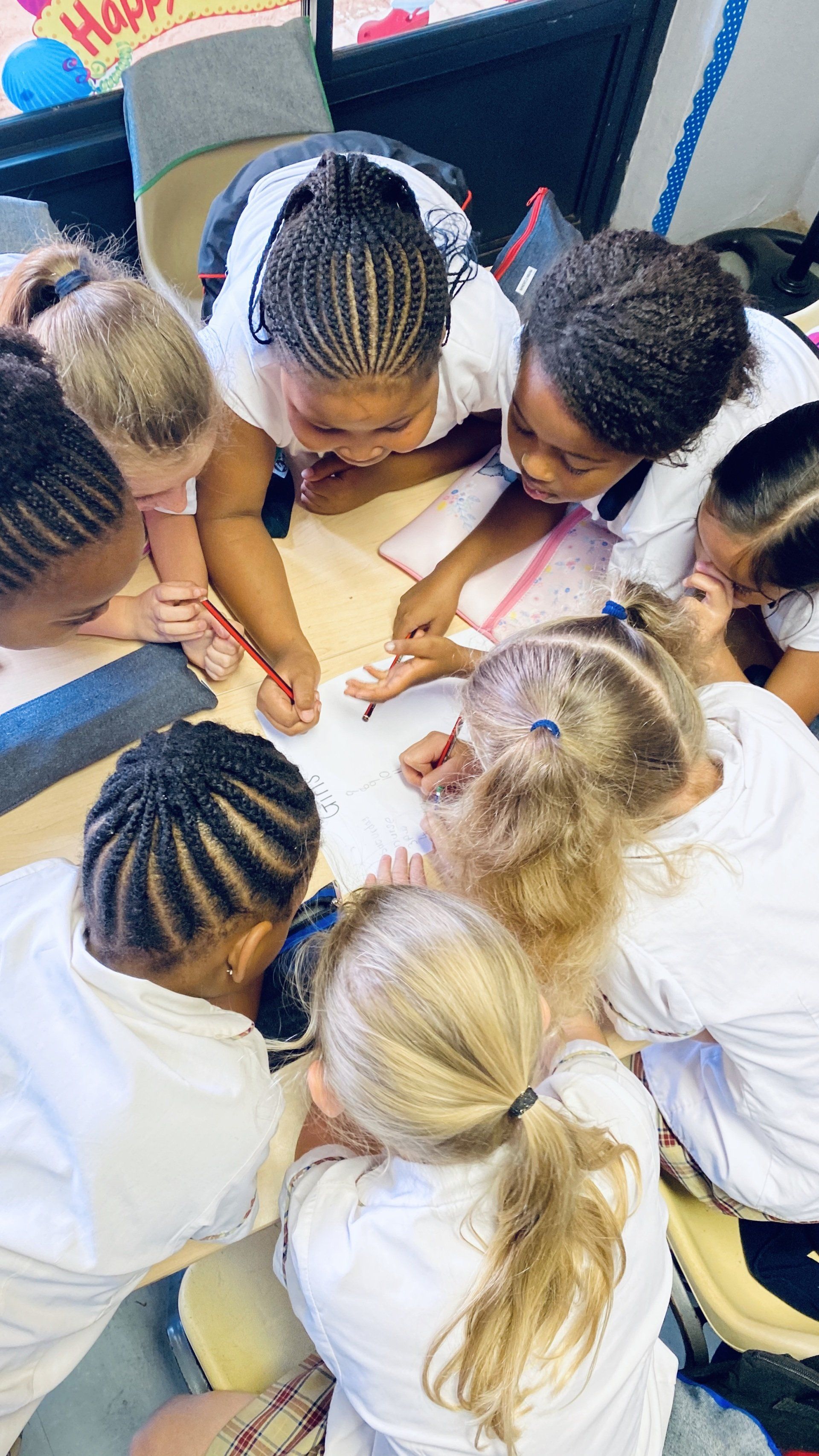CRAWFORD INTERNATIONAL SCHOOLS AUTHORISED AS INTERNATIONAL BACCALAUREATE WORLD SCHOOLS
Crawford International Schools • February 16, 2021
CRAWFORD INTERNATIONAL SCHOOLS AUTHORISED AS INTERNATIONAL BACCALAUREATE WORLD SCHOOLS

The Crawford International group of schools are the first group globally to simultaneously complete the authorisation process, with seven of their Preparatory schools becoming IB World Schools. Crawford International Ruimsig will be authorising as the eighth school in 2021.
The authorisation process is an intensive and mandated procedure required by all schools across the globe wishing to officially be recognised as International Baccalaureate (IB) World Schools.
Our Crawford International Preparatory schools are now authorised to offer the IB Primary Years Programme (PYP).
The aim of an IB World School, is to develop internationally minded people who recognising their common humanity and shared guardianship of the planet choose to make the world a better place locally, regionally or globally.
The PYP is a multifaceted educational framework, driven by conceptual understandings that capture future focused approaches and ways of thinking, being and acting as an internationally minded citizen.
The IB is a global organisation with their Head Office located in The Hague, Europe. The IB programmes are divided into four core phases depending on school structures: PYP for 2 – 12-year olds; Middle Years Programme (MYP) for 11 – 16-year olds; Diploma Programme (DP) for 16 – 19-year olds, as well as a careers certification offering.
These International Baccalaureate programmes are currently active in over 5200 schools across the globe, providing an incredibly powerful network of over 70 000 professional educators engaging in discussions around teaching, learning, innovation and application, which continues to enhance and extend the exceptional IB educational offering.
The PYP is ideal for the students of today and is structured around empowering these students to become active, life-long learners, grappling with challenges and engaging in relevant discussions related to the world they are a part of.
The PYP still encompasses the same subject areas we’re familiar with, but the way this is packaged, presented, taught and inquired into, is unique. The term used to describe it is transdisciplinary, where all subject areas relevant to each unit of learning are integrated under a broad conceptual understanding being explored over a period of five to seven weeks.
PYP in Practice
The programme continually incorporates local and global issues into the curriculum, asking students to look at six related, transdisciplinary themes and to consider the links between them. These themes include ‘Who We Are’, ‘Where We Are in Place and Time’ and ‘How the World Works’.
The PYP is committed to structured, purposeful inquiry that engages students actively in their own learning. The programme supports students’ efforts to construct meaning from the world around them by:
· drawing on their prior knowledge,
· providing provocation through new experiences,
· creating and delivering units of learning that are interconnected and focused on being relevant in the world of today,
· providing opportunities for reflection and consolidation.
The PYP transdisciplinary framework encourages and supports connections across learning and teaching as a means to raise student’s awareness for the relevance of their learning to their reality. As such, the units of inquiry that the students have been engaging in, are transformed for topics into exploring conceptual understandings, for example:
Instead of learning about “water” as a topic, students inquire into how “people depend on and need to conserve earth’s limited resources”;
Instead of simply learning about basic “food chains” as an isolated topic, students inquire into an understanding of how “plants and animals are interconnected and depend on each other for survival in their environments”;
Instead of simply repeating the experiment the teacher has designed, students inquire into how “scientific investigations can help people to make sense of the world”;
Instead of hosting another “market day” the students complete a full inquiry into how “economies depend on the ability to produce goods and supply services that can be exchanged”.
So Why Did Crawford International Schools Choose the International Baccalaureate PYP?
The PYP encourages students to inquire through natural curiosity in a collaborative environment. It helps students create meaning in a complex and interdependent world by building understandings through exploring real-world issues. The PYP creates opportunities for students to become more confident communicators through ensuring they learn more than one language, and are able to share their understandings in a variety of multimodal approaches (verbal, written, digital, face-to-face, pictorial, etc.)
The PYP strongly believes in teaching students about learning how to learn. There is constant self-reflection; student agency with voice and choice; and ultimately the expectation to consider their next steps needed to progress in their learning.
The PYP helps students see things from different perspectives through encouraging International Mindedness - developing greater consideration of oneself, of others, of different cultures and different countries, thus becoming more open-minded in acknowledging why people may hold a different stance to their own.
The staff at all our Crawford International Preparatory Schools continue to receive and attend ongoing professional development (PD) offered by the International Baccalaureate Head Office who appoint and organise Workshop Leaders and IB Trainers, as well as from the Head of IB: ADvTECH South Africa, Traci-Salter Willis and the IB PYP Coordinators appointed at every school.












